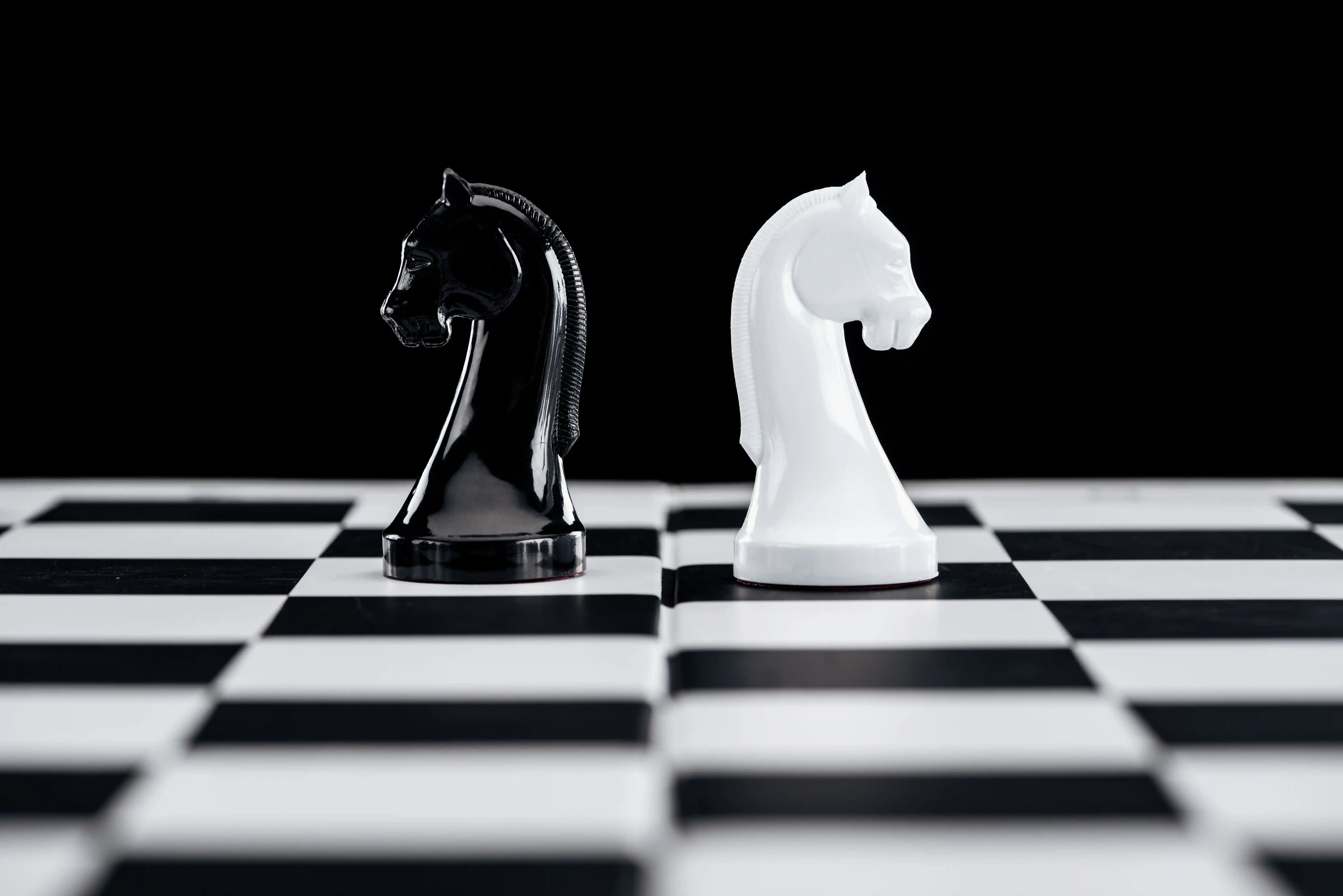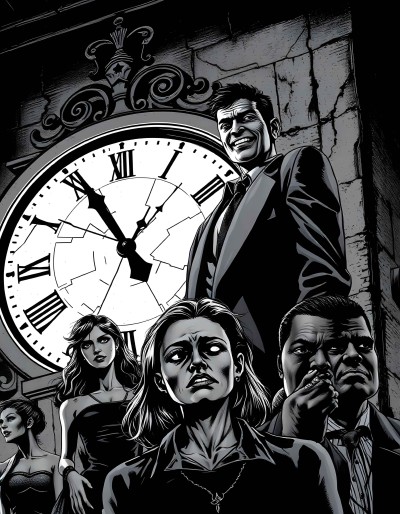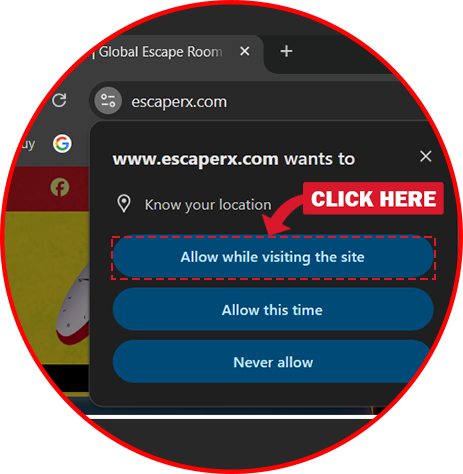Escape Rooms and the Leader: Guiding Teams to Victory
As the Leader in escape rooms, you steer your team with clear direction and decisive actions, ensuring everyone stays focused on the task at hand. You thrive on responsibility, naturally taking charge in moments of chaos, helping to organize and delegate tasks to get the best out of your team.
The Leader is an essential role, especially when teamwork is key to solving complex puzzles and navigating the room within the time limit.
Who Is the Leader in Escape Rooms?
The Leader in an escape room is the individual who naturally steps up to direct the team. This person is often confident, decisive, and able to maintain focus under pressure. The Leader ensures that tasks are delegated efficiently, making sure no one feels left out or overwhelmed. They take on the responsibility of keeping everyone motivated and on task. Whether you're in a team of newbies or seasoned escapers, having a strong leader helps streamline the entire experience.
But what makes a great leader in escape rooms? A combination of people skills, quick thinking, and a deep understanding of how to balance collaboration and delegation.
What Does the Leader Do in Escape Rooms?
The role of the Leader is to guide the team through the entire escape room experience, from the moment the game begins until the last lock is cracked. Here’s a breakdown of what the Leader’s responsibilities include:
- Delegation of Tasks: The Leader often assigns different tasks to each team member based on their skills and strengths. Whether it’s searching for clues, solving puzzles, or managing the room’s props, the Leader makes sure everyone has a role to play.
- Communication: The Leader is constantly communicating with the team. They ensure that everyone shares what they’ve found and collaborates on puzzle-solving efforts. They prevent team members from working in isolation by keeping the group informed.
- Time Management: The Leader is often the person most aware of the ticking clock. They ensure that the team is working efficiently and, when necessary, pushes the group to move faster or shift focus.
- Motivation: When the team hits a roadblock, the Leader is there to offer encouragement. They keep the morale high, reminding the team to stay positive and focused, even when things get tough.
Why Does a Team Need a Leader in Escape Rooms?
Escape rooms are designed to be challenging. The Leader helps to streamline the chaos and confusion that can sometimes arise. Without strong leadership, teams can often waste precious time focusing on the wrong things or becoming disorganized. A Leader’s ability to think clearly, communicate effectively, and delegate tasks is key to making sure the team works as a cohesive unit.
Having a leader can be the difference between escaping in record time or being stuck on the first puzzle. In fact, studies show that escape room teams with clear leaders often perform better than teams where everyone tries to solve everything without clear roles.
When Does the Leader Step Up in Escape Rooms?
The Leader steps up at various critical points throughout the game:
- At the Beginning: Right after the initial room briefing, the Leader often begins by organizing the team. They quickly assess everyone’s strengths and start delegating tasks.
- During Key Moments: As the game progresses, the Leader takes charge during crucial turning points, like when the team is struggling with a particular puzzle or when time is running out. They ensure the group stays focused on what matters most.
- Near the End: As the clock ticks down, the Leader ramps up the pressure and makes quick decisions about where to focus efforts. They often take the initiative on the final puzzle, helping to guide the team to victory.
Where Does the Leader Make the Biggest Impact in Escape Rooms?
Leaders have the biggest impact when the team is large or the puzzles are especially complex. In larger teams, it’s easy for players to become disorganized, with too many people focusing on the same tasks or ignoring vital clues. A strong leader can help prevent this by directing attention where it’s needed.
In more intricate escape rooms, the puzzles often require a combination of different skills and perspectives to solve. The Leader makes sure that every team member contributes and that no one gets bogged down in unnecessary details.
Leaders are also indispensable when the escape room has multiple rooms or stages. With so many moving parts, having a person directing the flow of activities is crucial to keeping everything on track.
How Can You Be a Better Leader in Escape Rooms?
Not everyone is a natural-born leader, but anyone can improve their leadership skills with practice. Here are some tips for being an effective leader in escape rooms:
- Know Your Team: Understanding the strengths and weaknesses of each team member will allow you to delegate tasks more effectively. Don’t hesitate to ask players what they’re good at.
- Stay Calm Under Pressure: Escape rooms are designed to create tension, but a good leader remains calm and composed, ensuring the team doesn’t panic when things get tough.
- Encourage Teamwork: Being a leader isn’t about solving every puzzle yourself; it’s about ensuring that the team works together effectively. Make sure everyone has a voice and can contribute.
- Communicate Constantly: Keep your team in the loop. Whether it’s sharing a breakthrough in a puzzle or keeping an eye on the time, good communication is key to effective leadership.
- Be Decisive: Sometimes, you’ll need to make quick decisions—whether it’s changing the team’s focus or abandoning a puzzle that’s taking too long. A good leader isn’t afraid to make tough calls.
- Motivate Your Team: Escape rooms are meant to be fun, but they can also be stressful. Keep your team’s spirits high by offering positive reinforcement and celebrating small victories along the way.
Final Thoughts: The Importance of Leaders in Escape Rooms
The Leader plays an integral role in every successful escape room team. Without someone to organize and direct, even the most skilled players can struggle to complete the game on time. Whether you’re an experienced escaper or new to the escape room world, stepping into the role of the Leader can be a rewarding experience that allows you to guide your team to victory.
If you’re ready to take on the responsibility, embrace your role as the Leader and show your team the way out—one puzzle at a time.




















